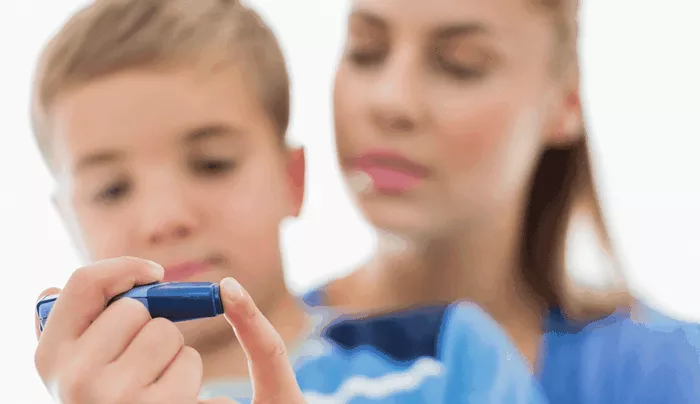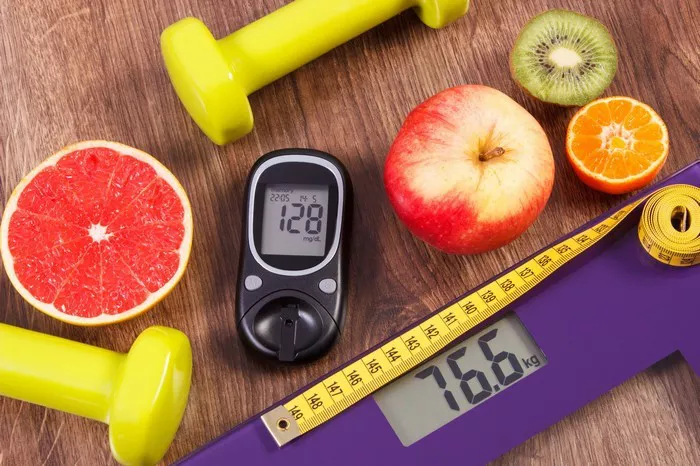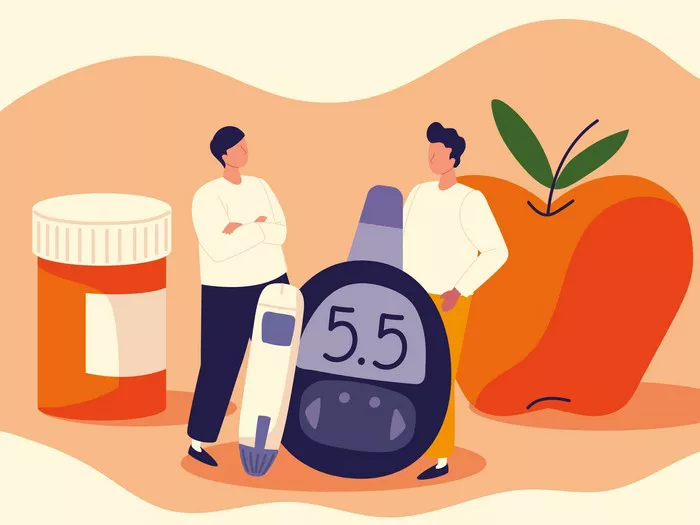What is Hypoglycemia?
Hypoglycemia is defined as blood sugar levels falling below 70 milligrams per deciliter (mg/dL). It can occur suddenly and requires immediate attention to prevent severe complications. Blood glucose is a primary energy source for the body’s cells, and the brain relies on it almost exclusively for energy. Therefore, low levels can lead to symptoms ranging from mild discomfort to severe neurological impairment.
Causes of Hypoglycemia
The causes of hypoglycemia can vary widely and are often related to lifestyle and medical conditions. Here are some common causes:
- Diabetes Medications: Insulin and oral hypoglycemic agents can sometimes lower blood sugar levels too much, especially if the dosage is too high or meals are missed.
- Skipping Meals: Not eating enough or delaying meals can cause blood sugar levels to drop.
- Excessive Alcohol Consumption: Alcohol can interfere with the liver’s ability to release glucose into the bloodstream.
- Intense Physical Activity: Exercise uses up glucose, which can lead to lower blood sugar levels, especially if not balanced with adequate food intake.
- Hormonal Deficiencies: Conditions like adrenal insufficiency and certain pituitary disorders can lead to hypoglycemia.
Symptoms of Hypoglycemia
Recognizing the symptoms of hypoglycemia is crucial for timely intervention. Symptoms can vary from person to person, but common signs include:
- Shakiness
- Dizziness
- Sweating
- Hunger
- Irritability or moodiness
- Anxiety or nervousness
- Headaches
- Difficulty concentrating
- Pale skin
- Rapid or irregular heartbeat
In severe cases, hypoglycemia can cause confusion, seizures, loss of consciousness, and even death if not treated promptly.
What to Eat if You Have Hypoglycemia
Managing hypoglycemia involves not just immediate treatment but also long-term dietary strategies to prevent recurrent episodes. Here’s a detailed look at what you should eat if you have hypoglycemia.
Immediate Treatment for Hypoglycemia
When you experience hypoglycemia, it’s essential to act quickly to bring your blood sugar levels back to normal. The “15-15 Rule” is a commonly recommended strategy:
Consume 15 grams of fast-acting carbohydrates. These are simple sugars that your body can absorb quickly to raise blood sugar levels. Examples include:
- 4 ounces (1/2 cup) of juice or regular soda (not diet)
- 1 tablespoon of sugar, honey, or corn syrup
- Glucose tablets (follow package instructions)
- Hard candies (3-4 pieces, depending on the type)
Wait 15 minutes. Check your blood sugar level again. If it’s still below 70 mg/dL, repeat the process.
Follow up with a meal or snack. Once your blood sugar is above 70 mg/dL, eat a small meal or snack to stabilize your levels. This should include a mix of carbohydrates, protein, and fat.
Regular Meals and Snacks
Preventing hypoglycemia involves maintaining stable blood sugar levels through balanced meals and snacks. Here are some dietary recommendations:
Carbohydrates: Focus on complex carbohydrates that are absorbed more slowly, helping to maintain steady blood sugar levels. Examples include:
- Whole grains (brown rice, quinoa, whole wheat bread)
- Vegetables (sweet potatoes, carrots, leafy greens)
- Legumes (beans, lentils, chickpeas)
Protein: Protein helps stabilize blood sugar levels by slowing the absorption of carbohydrates. Include a source of protein in every meal and snack. Good sources include:
- Lean meats (chicken, turkey)
- Fish and seafood
- Eggs
- Dairy products (milk, cheese, yogurt)
- Plant-based proteins (tofu, tempeh, nuts, seeds)
Healthy Fats: Fats can slow the absorption of carbohydrates, which helps prevent spikes and drops in blood sugar levels. Include healthy fats such as:
- Avocados
- Nuts and seeds
- Olive oil and other plant-based oils
- Fatty fish (salmon, mackerel)
Fiber: Fiber slows the digestion and absorption of carbohydrates, helping to keep blood sugar levels steady. High-fiber foods include:
- Fruits (berries, apples, pears)
- Vegetables (broccoli, Brussels sprouts, kale)
- Whole grains (oats, barley)
- Legumes (black beans, lentils)
Specific Meal and Snack Ideas
Creating balanced meals and snacks can be simple with some planning. Here are some ideas to help manage hypoglycemia:
Breakfast:
- Greek yogurt with berries and a sprinkle of chia seeds
- Oatmeal topped with sliced almonds and fresh fruit
- Scrambled eggs with spinach and whole grain toast
Lunch:
- Grilled chicken salad with mixed greens, avocado, and a vinaigrette dressing
- Quinoa bowl with roasted vegetables, chickpeas, and a tahini dressing
- Whole grain wrap with turkey, hummus, and plenty of veggies
Dinner:
- Baked salmon with a side of quinoa and steamed broccoli
- Stir-fry with tofu, mixed vegetables, and brown rice
- Lean beef tacos with whole grain tortillas, black beans, and avocado
Snacks:
- Apple slices with almond butter
- Cottage cheese with cucumber slices
- Handful of mixed nuts and a piece of fruit
- Whole grain crackers with cheese
Hydration and Hypoglycemia
Staying hydrated is also essential for managing blood sugar levels. Dehydration can affect blood sugar control and overall health. Drink plenty of water throughout the day, and consider incorporating other hydrating, low-calorie beverages such as herbal teas and infused water.
Lifestyle Tips for Managing Hypoglycemia
In addition to dietary strategies, certain lifestyle adjustments can help manage and prevent hypoglycemia:
- Regular Monitoring: If you have diabetes, monitor your blood sugar levels regularly to catch and treat hypoglycemia early.
- Regular Meals: Eat regular meals and snacks throughout the day to prevent long gaps without food.
- Exercise Wisely: If you exercise, do so with a plan. Always have a snack available and monitor your blood sugar before and after physical activity.
- Limit Alcohol: If you choose to drink alcohol, do so in moderation and always with food.
- Educate Others: Inform family, friends, and coworkers about hypoglycemia so they can help in an emergency.
- Medical Alert: Consider wearing a medical alert bracelet to inform others of your condition in case of an emergency.
When to Seek Medical Help
While dietary and lifestyle changes are essential for managing hypoglycemia, there are times when medical intervention is necessary. Contact your healthcare provider if:
- You frequently experience hypoglycemia, despite following a healthy diet and lifestyle.
- Your symptoms are severe or do not improve with initial treatment.
- You are unsure of the cause of your hypoglycemia.
- You need guidance on adjusting your diabetes medications.
See also: What Medication Causes Hypoglycemia
Conclusion
Hypoglycemia is a manageable condition with the right approach to diet and lifestyle. By understanding the causes and symptoms, and by implementing a balanced diet with regular meals and snacks, you can maintain stable blood sugar levels and prevent episodes of hypoglycemia. Always work closely with your healthcare provider to tailor a plan that suits your individual needs, and don’t hesitate to seek medical advice if you encounter challenges in managing your condition. With careful planning and awareness, you can effectively manage hypoglycemia and lead a healthy, active life.
Related topics:
What Triggers Reactive Hypoglycemia
What’s the Definition and Implication of Hypoglycemia in Child
What Are The Various Factors That Contribute To Hypoglycemia



























